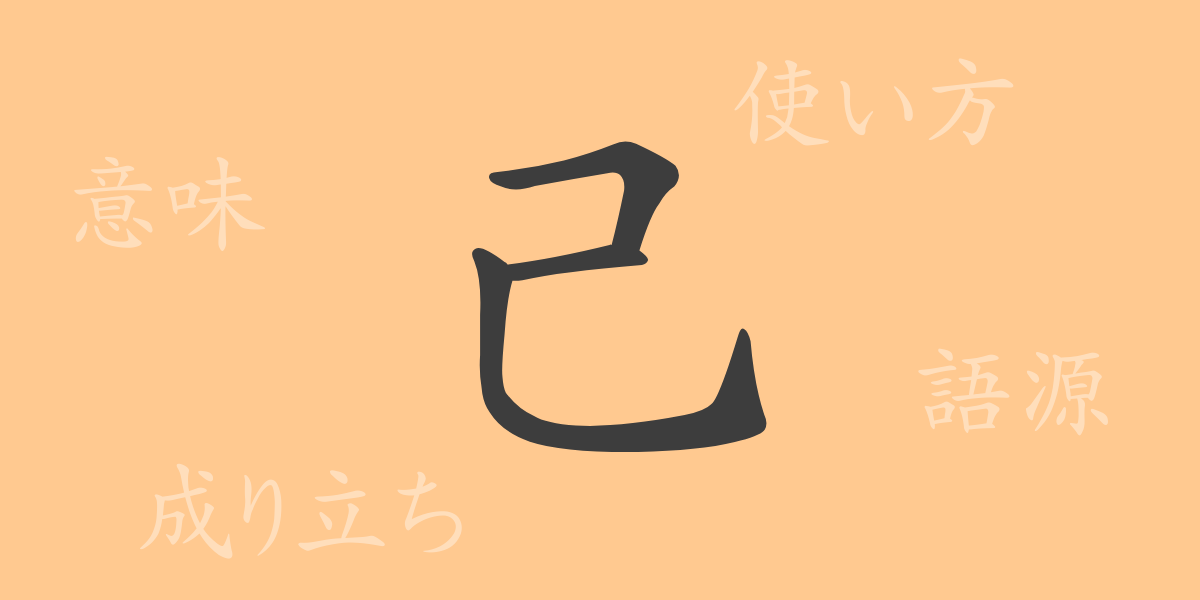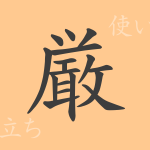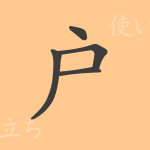Kanji are indispensable in Japanese written language. Among them, the character “己(おのれ/こ)” is a commonly used kanji with a profound meaning that refers to oneself. This article explores the origins, meanings, and uses of “己(おのれ/こ),” including idiomatic expressions and proverbs that feature this interesting kanji.
Origins of 己(おのれ/こ)
The kanji “己(おのれ/こ)” has its origins in ancient Chinese oracle bone script. The shape is derived from a pictogram representing a twisted thread, which evolved to symbolize the abstract concept of oneself. Over time, the shape was simplified to the current form of “己(おのれ/こ).”
Meanings and Uses of 己(おのれ/こ)
The primary meaning of “己(おのれ/こ)” is “oneself.” It is often used when reflecting on oneself or emphasizing one’s own actions or thoughts. It can also be used in a humble context to refer to oneself in relation to others.
Readings, Stroke Count, and Radical of 己(おのれ/こ)
The kanji “己(おのれ/こ)” contains significant information despite its simple form.
- Readings: The On’yomi (音読み/おんよみ) is “コ(こ),” and the Kun’yomi (訓読み/くんよみ) is “おのれ(onore).”
- Stroke count: “己(おのれ/こ)” has 4 strokes.
- Radical: The radical is “己(おのれ),” which is the kanji itself.
Idioms, Phrases, and Proverbs Using 己(おのれ/こ)
There are many idioms, phrases, and proverbs that include the kanji “己(おのれ/こ).” Here are a few examples:
- 己を知る(おのれをしる): To deeply understand oneself.
- 己を省みる(おのれをかえりみる): To reflect on and reconsider one’s own actions.
- 己の欲せざる所は人に施すなかれ(おのれのほっせざるところはひとにほどこすなかれ): The teaching that one should not do to others what one does not want done to oneself.
Conclusion About 己(おのれ/こ)
The kanji “己(おのれ/こ)” is often used for introspection and is deeply related to Japanese spirituality and ethics. Its simple form belies its diverse readings and uses, highlighting the depth of the Japanese language. By understanding “己(おのれ/こ),” we can appreciate the richness of the language and its cultural nuances. This article aims to deepen your understanding of “己(おのれ/こ)” and help you enjoy the world of Japanese words even more.

























